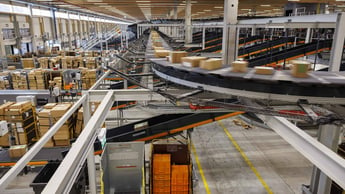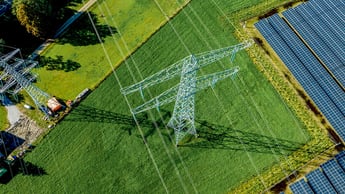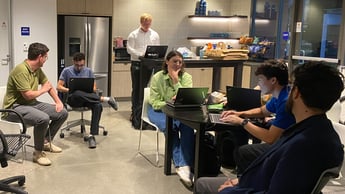Sustainable investments aren't solely the domain of governments and corporations: every individual has a role in this energy transition. And that role is changing; a transition within a transition.
The traditional role of an energy consumer is rapidly fading away. More and more consumers and businesses (both large and small) are covering their roofs with solar panels. This turns everyone into a 'prosumer': a producer and consumer in one.
Additionally, we are witnessing advancements in energy storage through batteries. This tackles the volatility of energy generation, allowing solar and wind energy to be used (or traded!) when it's most needed. While in the Netherlands businesses predominantly adopted this for now, home batteries have yet to find a standard place in Dutch households.
Furthermore, there's a shift towards dynamic contracts. Electricity is consumed by the hour at the prevailing hourly rate. This rate is determined by supply and demand: an incentive to consume when there's an excess of energy and to reduce consumption when energy is scarce. The same incentive applies to energy feedback: it's more appealing to feed energy back into the grid when there's a shortage rather than a surplus. In the latter case, energy feedback even incurs a negative hourly rate.
All of this demands awareness from all players in the energy market: when do you generate energy, and when do you use it? How can these moments be aligned as effectively as possible? And how can you lower your climate impact (and energy bill)? This requires a multitude of considerations and decisions – so many that you might not always be sure what the best course of action is.
Installers of sustainable equipment play a pivotal role in this process. They act as trusted advisors in the process of making both consumers' and businesses' setups more sustainable. There are two challenges here. Firstly, ensuring that different devices work well together (like solar panels in conjunction with heat pumps and electric cars). Secondly, the more fundamental challenge of ensuring efficient operation of installations: achieving the lowest possible costs for users within their comfort limits.
To aid in these challenges, we've developed EnTune. An app that encourages users to handle energy generation, storage, and especially consumption as sustainably as possible. This leads to energy savings, along with a positive impact on the environment and the energy network. In this way, we all contribute to the energy transition.
Installers hold the key to driving this change. They can integrate EnTune with energy systems in homes and buildings.






